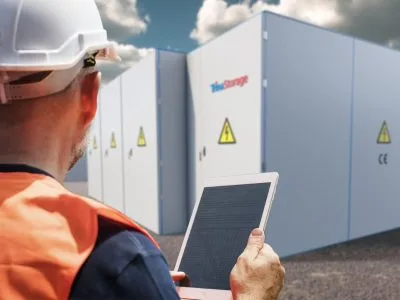Batteries May Be Overshadowed By Hydrogen, CAES
Of the many types of energy storage systems today, battery storage appears to be the talk of the town. However, for the long-term, massive-scale scenario, experts say that the popularity of batteries won’t step up. Instead, they name three others that will.
The three cited energy storage systems that are foreseen to be more cost effective on a long-term basis are chemical energy, compressed air energy storage (CAES), and pumped hydro. Although viewed as “still-emerging” storage techniques, some countries in Europe and America see great potential in these three.
Germany’s Dr. Gunter Ebert cites hydrogen and methane as the best solution for storing energy when looking at the long-term picture. This chemical technology, he says, can carry as much as 70 terawatt-hours of stored energy while batteries are merely good for about 50 gigawatt hours.
Meanwhile, an American firm in Boston is banking on CAES technology and has consequently launched a 2MW pilot project. Ideally, its optimum utility should run from 10 to 100MW. Compared to battery storage systems, CAES is a cheaper alternative. Additionally, storage capacities of up to 400MW hours are possible based on a 100MW wind project.
Still, some experts believe that pumped hydro energy storage would cost even less than CAES, advanced batteries, and other storage technologies.
If you want to know more about this and other topics directly from end users of energy storage technologies join us at one of these annual events: The Energy Storage World Forum (Grid Scale Applications), or The Residential Energy Storage Forum, or one of our Training Courses.



